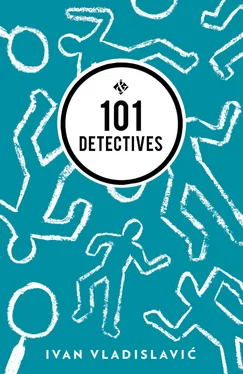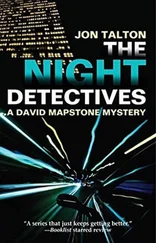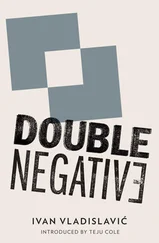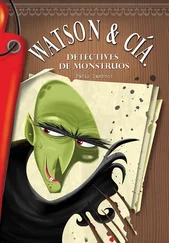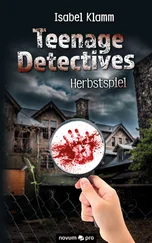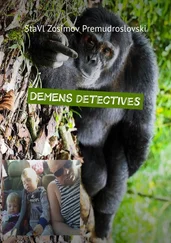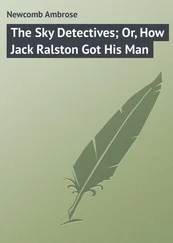Ivan Vladislavic - 101 Detectives
Здесь есть возможность читать онлайн «Ivan Vladislavic - 101 Detectives» весь текст электронной книги совершенно бесплатно (целиком полную версию без сокращений). В некоторых случаях можно слушать аудио, скачать через торрент в формате fb2 и присутствует краткое содержание. Год выпуска: 2015, Издательство: And Other Stories Publishing, Жанр: Современная проза, на английском языке. Описание произведения, (предисловие) а так же отзывы посетителей доступны на портале библиотеки ЛибКат.
- Название:101 Detectives
- Автор:
- Издательство:And Other Stories Publishing
- Жанр:
- Год:2015
- ISBN:нет данных
- Рейтинг книги:4 / 5. Голосов: 1
-
Избранное:Добавить в избранное
- Отзывы:
-
Ваша оценка:
- 80
- 1
- 2
- 3
- 4
- 5
101 Detectives: краткое содержание, описание и аннотация
Предлагаем к чтению аннотацию, описание, краткое содержание или предисловие (зависит от того, что написал сам автор книги «101 Detectives»). Если вы не нашли необходимую информацию о книге — напишите в комментариях, мы постараемся отыскать её.
and
, invites readers to do some detective work of their own. Each story can be read as a story, but many hide clues and patterns. Whether skewering extreme marketing techniques or constructing dystopian parallel universes, Vladislavic will make you look beyond appearances.
101 Detectives — читать онлайн бесплатно полную книгу (весь текст) целиком
Ниже представлен текст книги, разбитый по страницам. Система сохранения места последней прочитанной страницы, позволяет с удобством читать онлайн бесплатно книгу «101 Detectives», без необходимости каждый раз заново искать на чём Вы остановились. Поставьте закладку, и сможете в любой момент перейти на страницу, на которой закончили чтение.
Интервал:
Закладка:
Fact is, the corporate storyteller muses, and it makes the bristly nape of her exposed neck tingle, things do come out of the blue and kill people, famously Aeschylus, but ordinary folk too. She has several accounts in her notebook at home.
On a winter’s day in 1989, for instance, Uwe Kramer was hurrying across a carpark in the middle of Vienna, hunched into his parka, eyes fixed on the icy cobbles, when a falling object struck his head and killed him outright. At first, the police thought he had been bludgeoned with a bronze statuette, a poorly made table-top copy of Rodin’s Thinker , an explanation encouraged by the proximity of the Kunsthistorisches Museum, where many such objects are on display. But the murder weapon turned out to be an agglomeration of human waste evacuated (so they deduced) from the toilet of an airliner and quick-frozen on its plunge through the atmosphere.
The corporate storyteller had been in her new position for a fortnight before she discovered that there was also a corporate poet. It was at a meeting of the Financial Management Committee and she was due to tell her first story.
The Chairman of the Committee had just called the meeting to order when a tall woman in a luminous gown appeared from behind the whiteboard and began to speak in lilting tones about the stormy seas of the futures markets and the vicissitudes of the trade winds on the floor of the bourse. It was not her voice that captivated, however, but the lovely movements of her hands. The members of the Committee were entranced. There was a lectern but the poet did not stand behind it. She prowled around the boardroom table and every head swivelled to follow her. With a flick of a finger, she launched one metaphor after another onto the hushed air, and when they had almost escaped her, caught them up again and drew them to her breast.
The corporate storyteller was appalled. She pictured the words squirming like small animals with their tails pinched between curved fingernails. To dispel this unhappy image, she fixed her attention on the poet’s gown, through which she could see the curves of her hips and breasts. Was that a hairdo or a hat? Braids adorned with beads coiled about her head and fell to her shoulders, where they fused with her dress. A headpiece, the storyteller decided. It made the poet look lofty and prolific, as if her head was spilling sinuous verse. Although when the flow ceased, it was not words that echoed but gestures, a repertoire of movements of the hand and head as graceful and precise as any ballerina’s.
When her turn at the lectern came, between a lively discussion of the risk appetite for the new quarter and the latest modifications to the regulatory framework on corporate governance, the storyteller could not find her stride. She felt like a cashier in her prosaic business suit. There was nothing wrong with the story. It was a post-industrial piece, using the outmoded mechanics of cogs and levers to describe digital processes. It was graphic, she thought; it let the listener see the lever in leveraging. But she did not deliver it well: the words pooled on the floor of her mouth. At the heart of the story was a drop of oil that greased the wheels, spreading itself ever more thinly over the entire mechanism and allowing it to function, a lyrical passage perfectly in keeping with the poet’s contribution, and when she reached this point she glanced up at last from the screen to try to catch the poet’s eye — but she was nowhere to be seen.
There were appreciative murmurs afterwards, but the storyteller knew that her first bolt had missed the mark. This dismal performance plunged her into anxiety about her new job. She had been headhunted by the corporation, or so she believed. When the agency’s letter arrived, she had been working quite happily for a family concern. The package on offer was impressive and the personal approach was flattering. But how had it come about? She felt so uncomfortable in her new position, and so unwelcome, that she began to think some rival might have set her up for a fall.
In the weeks after her debut, she kept hoping she would bump into the poet, but she never did. That splendid, suede-booted personage made an appearance at board meetings and the occasional function, always slipping in at the last moment as if she had just been getting her make-up done in some fabled green room, and then she melted away again before the meeting was adjourned.
Finally, she’d asked Liselotte, the receptionist on floor 11, if she knew where the poet spent her working days. And so she learnt that her elusive colleague had an office somewhere above, on a higher floor. On 20, Liselotte said. Maybe even 21.
After that, she was never at ease in her own office, which everyone thought so stylishly spartan. She was in the wrong place, as simple as that. She belonged at a higher level.
The storyteller reached out to the poet once in her awkward way. At a special meeting of the Audit Committee, when the poet was still hovering, she tried a gesture herself, an undulating hand movement meant to convey the passage of time in a language her fellow artist would understand. But apparently her grasp of this language was poor, for one of the clerks in Strategy & Communication misunderstood entirely and came hurrying up to the lectern with a glass of water.
The recitation pod pings. It’s a soft but insistent sound, an electronic throat-clearing like the chiming of her refrigerator at home when she forgets to close the door. It wants attention.
The storyteller lifts her head from the desk and sniffs the air like a savage. As always, the sound is accompanied by a pleasant smell. What is it this time? Cinnamon, cloves, caramelised sugar. The laboratory’s idea of toffee apples.
The recitation pod repels her. How silly she must look standing in the corner of her office with her head in the hood, as the manual calls it. Like the classroom dunce. You cannot read in there, which is her forte. You can only speak. That’s what it’s designed for: to prevent you from reading and to teach you to speak. That’s why Human Capital & Technology allocated it to her. It has been recorded under ‘Number of training opportunities facilitated’ in the Corporate Balanced Scorecard. The fact that she is a reader by inclination and training has been noted and evaluated, and registered as a fault to be corrected or rather a challenge to be overcome. Nonetheless, when she goes into the pod, she always holds an open book in her hands, her forbidden notebook. Otherwise her fingers keep rising to the hood and touching its cold surface. She even keeps her eyes downcast as if she can see through the armoured shell and its rubber lining and follow the words on a page.
It is red inside the hood most of the time, a dense, dusty maroon as suffocating as old theatre curtains. Sometimes the colour changes, for reasons she cannot explain, to a minty green or a spacious midnight blue, and then she feels as if she could learn to breathe in there. But just as suddenly some viscous shade of yellow will wash back in and suck the rubber lining to her skull.
Going in, thrusting her head through the puckered aperture under the bell of the hood, is bearable. The ruff, lying heavily on her shoulders, reminds her of the protective bib the dentist’s assistant drapes over her when she’s about to take X-rays. The unexpected heaviness of something that appears to be light is pleasantly confusing to the senses. She almost enjoys the dead weight pressing down on her shoulders.
Coming out is another matter. Sensing her intentions, the hood contracts around her head like a prodded anemone. She has to wrestle herself free.
After a month of treatments in the pod, each more combative than the last, she’d gone to the hairdresser and had her sleek hair cut short, and now she wears it in stiff, unruly spikes, a carefully styled disorder which her skirmishes with the hood cannot ruffle. The new look was meant to register her dissatisfaction, but it went unremarked.
Читать дальшеИнтервал:
Закладка:
Похожие книги на «101 Detectives»
Представляем Вашему вниманию похожие книги на «101 Detectives» списком для выбора. Мы отобрали схожую по названию и смыслу литературу в надежде предоставить читателям больше вариантов отыскать новые, интересные, ещё непрочитанные произведения.
Обсуждение, отзывы о книге «101 Detectives» и просто собственные мнения читателей. Оставьте ваши комментарии, напишите, что Вы думаете о произведении, его смысле или главных героях. Укажите что конкретно понравилось, а что нет, и почему Вы так считаете.
